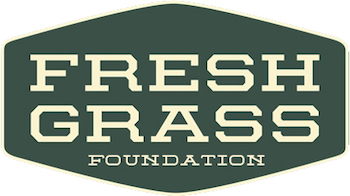Review: Nora Guthrie and Robert Santelli, ‘Woody Guthrie: Songs and Art, Words and Wisdom’

Woody Guthrie is one of the most iconic American folksingers and songwriters, as evidenced by the dozen or so books that have been written about him and his work. But a new volume from his daughter Nora—titled Woody Guthrie: Songs and Art, Words and Wisdom (Chronicle Books)—casts new light on a man whose body of work includes numerous paintings, drawings, novels, poems, and upwards of three thousand songs.
Along with her collaborator, the music journalist Robert Santelli, Nora delivers a portrait of her father that stretches well beyond his incredible canon of original songs. Of course, there are plenty of those as well.
Scanned journal entries show almost entirely correction-free first drafts of some of Guthrie’s most memorable compositions (“This Land Is Your Land”) and those that others have since recorded (“California Stars”). Two pages show the way one of his songs (“Reuben James”) was drafted by the folksinger then whittled down to a catchy hit by his collaborators in the Almanac Singers. There are also many included that have never been recorded.
There are lists he made of song titles, portraits of people and scenes he witnessed, letters and postcards he sent home on his travels—one, addressed to Mazia, has nothing on it but a stick figure in a silly stance, kicking a leg. All of this to show the great breadth of insight, appreciation of beauty, humor, and wisdom on which Guthrie subsisted.
Indeed, as Nora attested in a recent interview, she wanted to share a portrait of her father that depicted what a well-rounded artist and human he was. She highlights his relationship with her mother, Marjorie Mazia, who danced with Martha Graham and whose life in dance was endlessly inspiring to Guthrie. One’s head may spin to imagine the Guthrie-Mazia household on Brooklyn’s Mermaid Avenue in the 1950s, where you’d be just as likely to run into Martha Graham and Merce Cunningham as Lead Belly and Ramblin’ Jack.
The metaphor Nora spells out in the foreword has her as a child, on a stool at the local corner store, spinning in circles, taking in scenes and characters and ideas in every direction. It was at that same store where her father would get his art supplies—cheap paints and brushes, as well as his notebooks that he used as journals, and so on. As the book unfolds, we see a man whose creative life must have kept his brain constantly spinning and absorbing the world around him, in the same manner as Nora on the stool.
As his mind spun, Guthrie wrote everything down, titling and numbering each page and signing them at the bottom, as though he knew one day someone would collect them into an archive. (That someone was Nora.)
Through Nora’s careful, mindful curation, we get to see that not only was Guthrie an exquisite songwriter, but also a committed citizen, a consumed intellectual, a well-rounded artist of all forms, and a remarkable man fascinated by the culture and dynamics of a certain era of the 20th Century. He felt very strongly about the central importance of equality for all people, frequently citing the humanity and wisdom of women as well as the Black and indigenous people he saw being mistreated.
Granted, Guthrie was no perfect human. But Songs and Art, Words and Wisdom is a thick source of inspiration and insight of all kinds, for long-time fans and those just getting started.
Woody Guthrie: Songs and Art, Words and Wisdom is available – HERE
Listen to Nora Guthrie’s curated playlist of Woody Guthie’s songs on Classic Folk.



